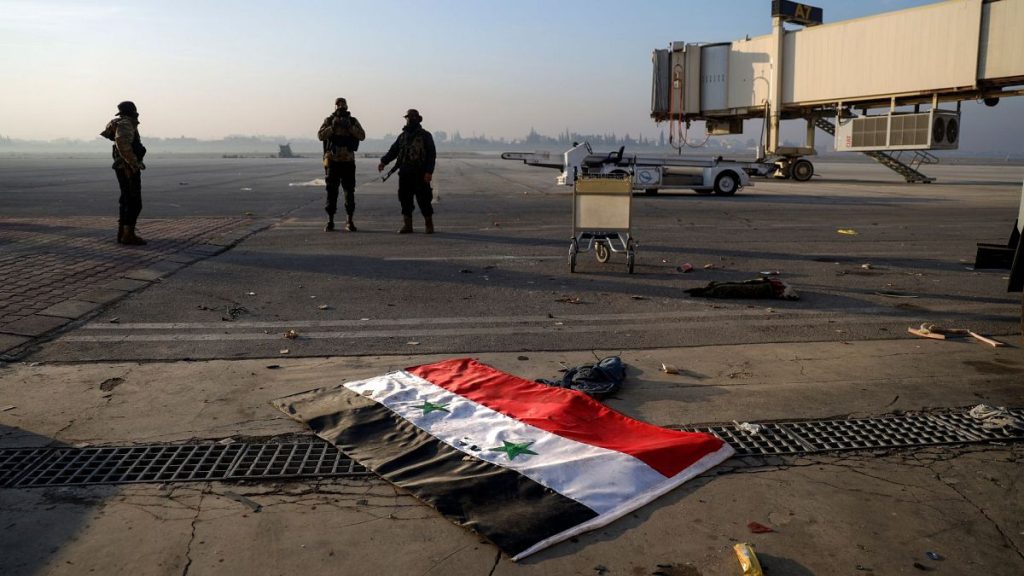The recent overthrow of Bashar al-Assad’s regime in Syria by rebel forces marks a significant turning point in the country’s protracted civil war, prompting international concern over the security of Syria’s chemical weapons stockpile and the trajectory of the nascent government. The swift rebel offensive, culminating in their entry into Damascus, has abruptly ended Assad’s decades-long rule, ushering in a period of transition fraught with uncertainty and challenges. The Organisation for the Prohibition of Chemical Weapons (OPCW) has scheduled an emergency meeting to address the potential risks associated with the chemical weapons arsenal and to review ongoing investigations into their alleged use during the conflict. The US has pledged support for a new Syrian government contingent on its commitment to denouncing terrorism, eliminating chemical weapons, and upholding the rights of minorities and women.
The OPCW, the international body responsible for overseeing the implementation of the Chemical Weapons Convention, has reiterated its call for Syria’s adherence to its obligations regarding the safe handling and destruction of dangerous substances, including chlorine gas. This comes amid mounting concerns about the potential for these weapons to fall into the wrong hands in the volatile post-Assad landscape. While the deposed Syrian government consistently denied employing chemical weapons, the OPCW has documented evidence suggesting their repeated use. The organisation’s findings have implicated not only the Assad regime but also non-state actors, such as the Islamic State group, which was found to have used mustard gas in an attack in 2015. The OPCW’s emergency meeting will provide a critical platform for international stakeholders to discuss the evolving situation and formulate strategies to secure Syria’s chemical weapons.
The transition of power in Syria has seen Mohammed al-Bashir, former head of the rebel’s “salvation government” in southwest Syria, emerge as the leader of a transitional cabinet. Al-Bashir has outlined a transitional period extending until early March, during which the new government will be tasked with stabilizing the country and laying the groundwork for a future political order. The US has articulated its support for the new government, provided it meets specific conditions, including a clear denunciation of terrorism, the complete elimination of chemical weapon stockpiles, and the protection of the rights of minorities and women. This conditional support underscores the US’s emphasis on human rights and security concerns in its approach to the Syrian transition.
The US State Department has clarified that the responsibility for verifying Syria’s compliance with chemical weapons obligations rests solely with the OPCW. Spokesperson Matthew Miller emphasized that neither the US nor any other member state has the authority to conduct such inspections, reinforcing the OPCW’s exclusive mandate in this domain. This clarification aims to delineate responsibilities and prevent potential overlapping or conflicting efforts in the delicate process of verifying and securing Syria’s chemical weapons. The OPCW’s role is crucial in ensuring the integrity of the process and maintaining international confidence in the efforts to eliminate these weapons of mass destruction.
Meanwhile, the regional security landscape remains complex, with Israel conducting a series of airstrikes within Syria, targeting what it claims are strategic weapons stockpiles. The Israeli military has acknowledged its operations inside a buffer zone within Syrian territory but denied any advances towards Damascus. These airstrikes highlight the ongoing tensions and security concerns in the region, with Israel asserting its right to act against perceived threats emanating from Syria. The situation is further complicated by Russia’s granting of political asylum to Bashar al-Assad, a move that has drawn criticism from some quarters but reflects Russia’s longstanding support for the former Syrian president.
The convergence of these developments – the overthrow of Assad, the transition to a new government, the concerns over chemical weapons, the US’s conditional support, Israel’s military actions, and Russia’s granting of asylum to Assad – presents a multifaceted and intricate challenge to regional and international stability. The coming months will be crucial in determining the trajectory of Syria’s political future and the effectiveness of international efforts to address the security challenges posed by the country’s chemical weapons arsenal. The international community will need to navigate this complex landscape with caution and collaboration to ensure a peaceful and secure transition for Syria and the wider region.














